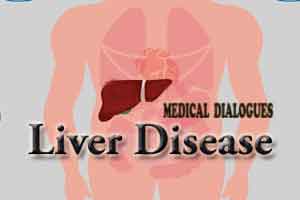- Home
- Editorial
- News
- Practice Guidelines
- Anesthesiology Guidelines
- Cancer Guidelines
- Cardiac Sciences Guidelines
- Critical Care Guidelines
- Dentistry Guidelines
- Dermatology Guidelines
- Diabetes and Endo Guidelines
- Diagnostics Guidelines
- ENT Guidelines
- Featured Practice Guidelines
- Gastroenterology Guidelines
- Geriatrics Guidelines
- Medicine Guidelines
- Nephrology Guidelines
- Neurosciences Guidelines
- Obs and Gynae Guidelines
- Ophthalmology Guidelines
- Orthopaedics Guidelines
- Paediatrics Guidelines
- Psychiatry Guidelines
- Pulmonology Guidelines
- Radiology Guidelines
- Surgery Guidelines
- Urology Guidelines
Emerging Drug Could Help Treat a Common Liver Disease

Treating a liver disease called NASH (non-alcoholic steatohepatitis), which affects 10 to 15 percent of obese individuals with type-2 diabetes worldwide, is difficult. But now scientists believe they have found a pharmacologic approach that may inhibit NASH, and thus stop deadly conditions that result from NASH such as cirrhosis and liver cancer.
Tadashi Honda, PhD, Research Professor in the Department of Chemistry, and Director of the Anti-Inflammatory Research Laboratory in the ICB & DD, along with colleagues at the Universities of Dundee and St. Andrews, are testing a drug invented by Dr. Honda called TBE-31. They found that TBE-31 activates a protein called Nrf2 in mice that neutralizes a group of damaging oxidizing materials in the liver called reactive oxygen species (ROS). The drug switches off ROS buildup in NASH, and therefore stops the condition and prevents liver damage. Their findings are published in latest edition of Cellular and Molecular Gastroenterology and Hepatology.
Currently there is no known drug that treats NASH. Individuals with NASH can only reduce morbidity and complications from the disease by making lifestyle changes.

Disclaimer: This site is primarily intended for healthcare professionals. Any content/information on this website does not replace the advice of medical and/or health professionals and should not be construed as medical/diagnostic advice/endorsement or prescription. Use of this site is subject to our terms of use, privacy policy, advertisement policy. © 2020 Minerva Medical Treatment Pvt Ltd